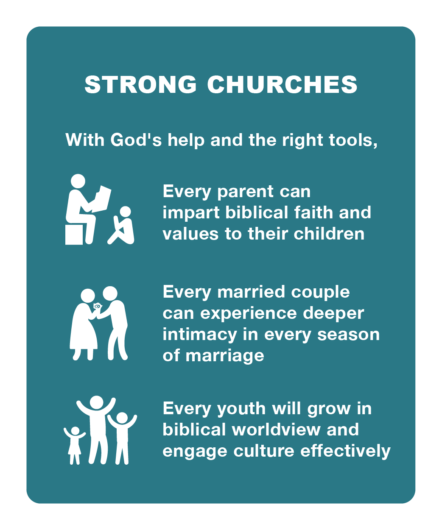Faith-based organisations
Equipping Christians to live out God's design for Family


Faith@Home
Addressing the state of the family, marriage, family life or relationships, these specially developed tools including the Whole Life Inventory, sermon series and family life mapping will equip families to live out God’s design.

Family Life Ministry
Strengthen marriages and parent-child connections among families in your congregation with talks, workshops, events, programmes and complimentary campaign resources.
Learn more
Youth & Young Adults Ministry
Equip youths with biblical truths and worldview in the areas of identity and relationships.

Events & Trainings
Equip your pastors and church leaders to disciple the church in the area of faith, relationships, identity, sexuality and values.
Learn more
Impact Stories
Focus on the Family Singapore has played an important role in our ministry to families that we serve at Barker Road Methodist Church.
Over our many years of partnership, the resources and trainings have helped equip our family life ministry in raising marriage and parent mentors to build strong marriages and parent-child relationships.
Ms Christina Khoo Family Life Ministry, Barker Road Methodist Church



Get in touch for partnerships
Join us to build God-honouring families!








